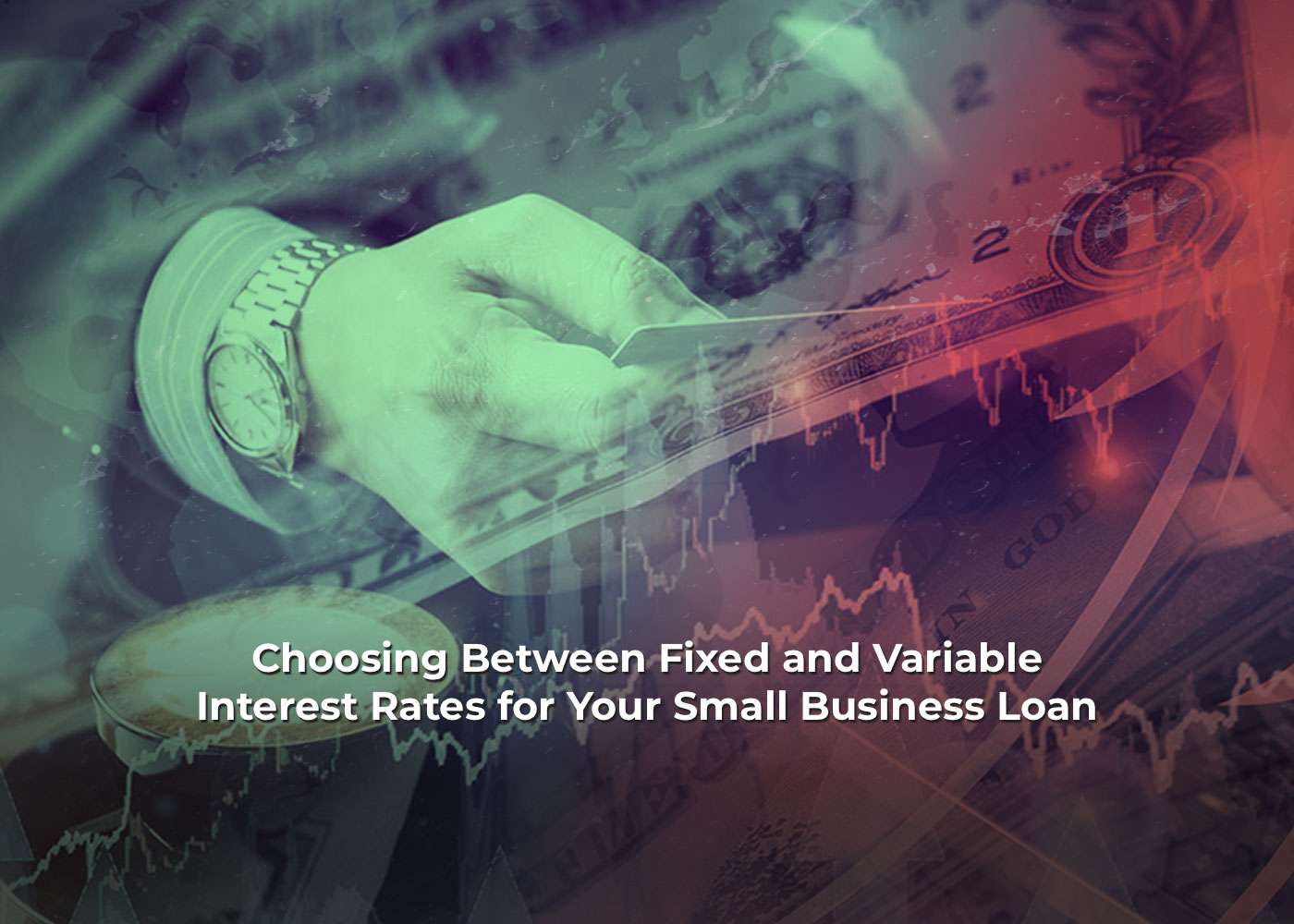Choosing Between Fixed and Variable Interest Rates for Your Small Business Loan
When looking for a small business loan one important consideration is whether to go for fixed or variable interest rates . Fixed rates remain consistent throughout the loan term while variable rates fluctuate based on market conditions . Fixed-rate loans provide predictable monthly payments while variable-rate loans offer the potential for savings or increased costs depending on interest rate changes . So is small business loan fixed or variable ? How to decide ? Let’s explore the details .

When looking for a small business loan one important consideration is whether to go for fixed or variable interest rates . Fixed rates remain consistent throughout the loan term while variable rates fluctuate based on market conditions . Fixed-rate loans provide predictable monthly payments while variable-rate loans offer the potential for savings or increased costs depending on interest rate changes . So is small business loan fixed or variable ? How to decide ? Let’s explore the details .
The Benefits of Fixed-Rate Loans
Fixed-rate business loans offer stability and predictability . Monthly payments remain the same over the loan’s duration which allows businesses to budget and plan effectively . As inflation increases the fixed payments become easier to manage since they do not adjust . This consistency allows businesses to distribute resources strategically and focus on long-term growth .
The Potential of Variable-Rate Loans
Variable-rate business loans start with lower interest rates and provide immediate access to capital . While the interest rates can fluctuate businesses have the potential to save money if rates decrease . However there is also the risk of increased costs if interest rates rise . The adjustment period varies which offers potential savings for several months before any increase takes effect .
Evaluating the Advantages and the Disadvantages
The decision between fixed and variable interest rates depends on a business owner’s specific circumstances . Fixed-rate loans are fitting for those who seek consistent monthly payments and stability . On the other hand variable-rate loans can be advantageous for short-term needs and when there is an expectation of decreasing interest rates . Businesses with tight profit margins should consider the potential risks of rate increases and opt for the security of fixed-rate loans .

Factors to Consider
When picking a loan type it is important to evaluate your business’s financial situation and future expectations . Evaluate the loan term as short-term variable-rate loans can provide savings before significant rate hikes . Consider the potential direction of interest rates and make an informed decision based on your viewpoint . Additionally some financing options may only offer variable rates while fixed-rate loans may have higher eligibility requirements .
Planning for the Future
Business owners must weigh the benefits and risks of fixed and variable-rate loans based on their specific needs . If there is a belief that interest rates will decrease variable-rate loans can be beneficial . Conversely if rates are expected to rise fixed-rate loans provide stability . It is also worth reminding that refinancing options are available if interest rates drop which provides flexibility for fixed-rate loan holders .
Final Thoughts
In conclusion choosing the right type of loan requires careful consideration . Variable-rate loans can be advantageous for short-term needs and potential savings while fixed-rate loans offer predictability and peace of mind . Analyze your business’s financial situation outlook and risk tolerance to make an informed decision that lines up with your long-term goals .




